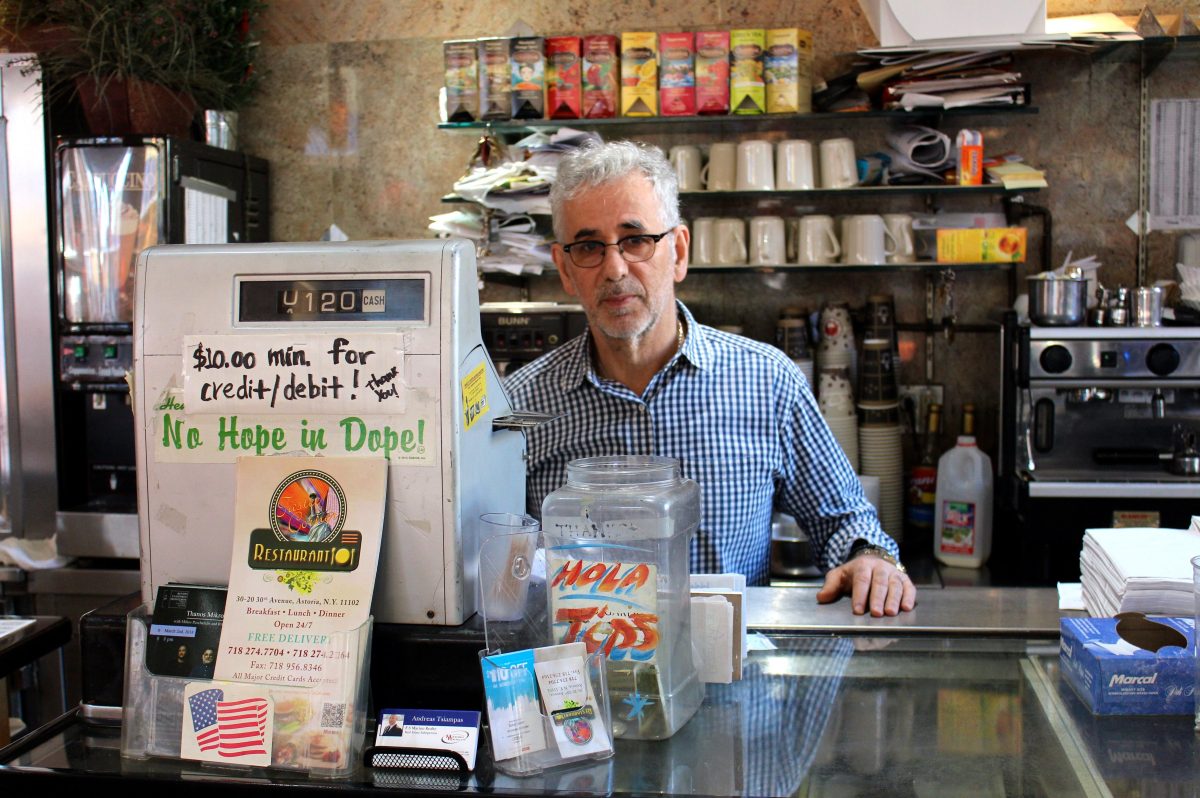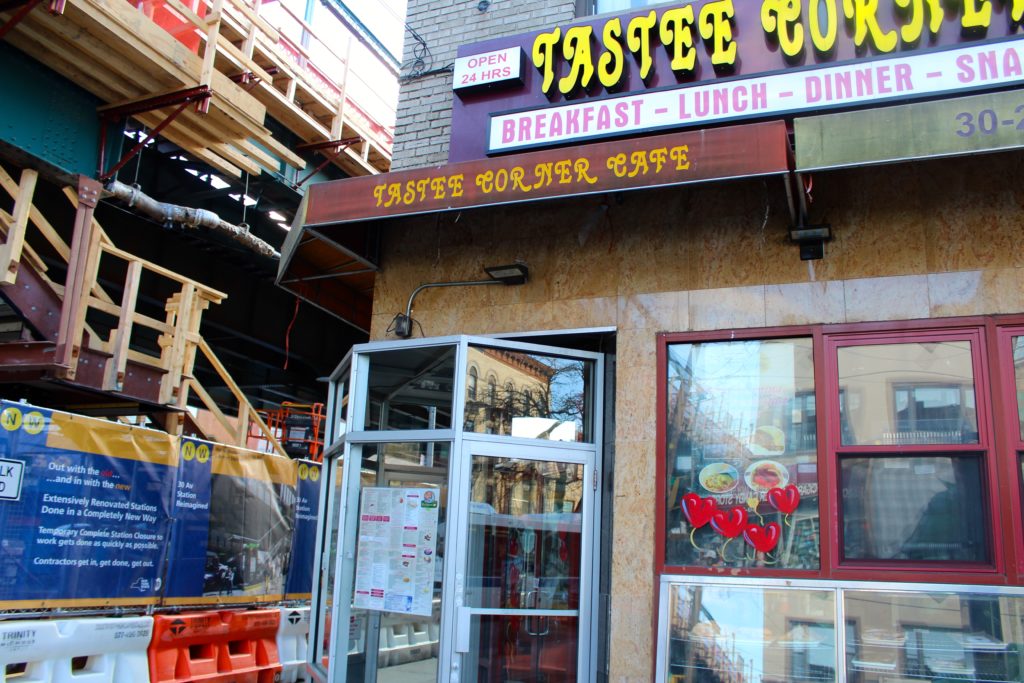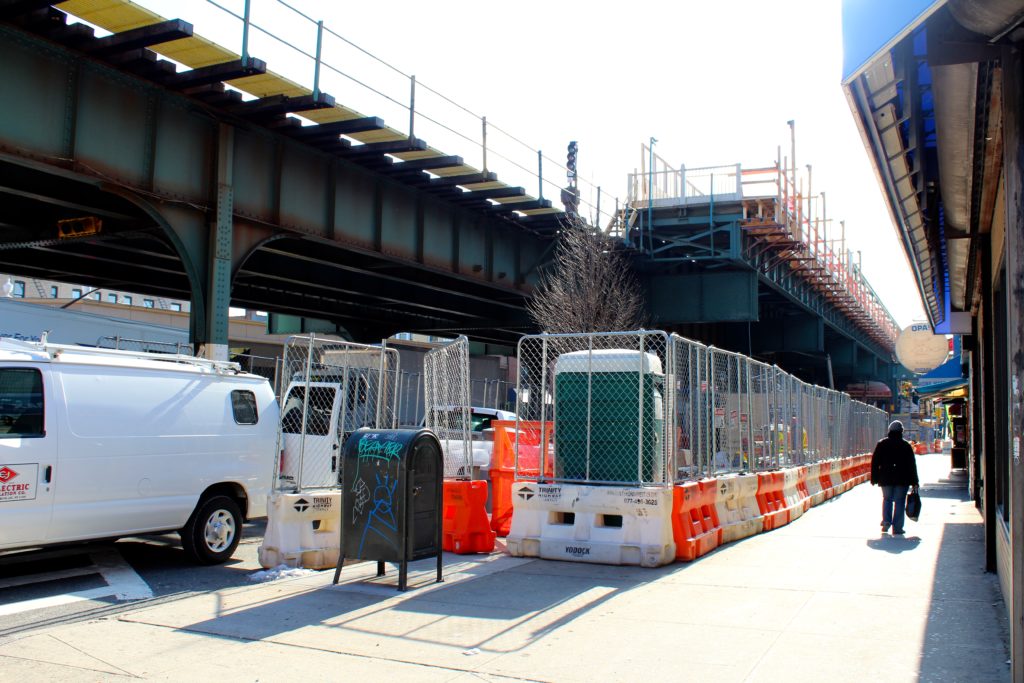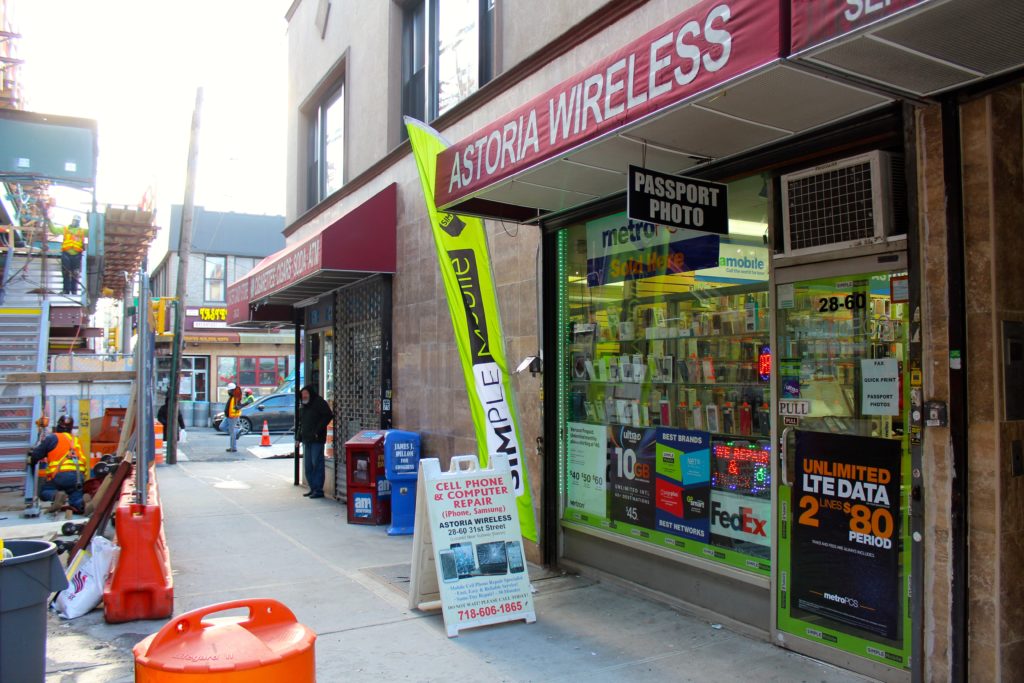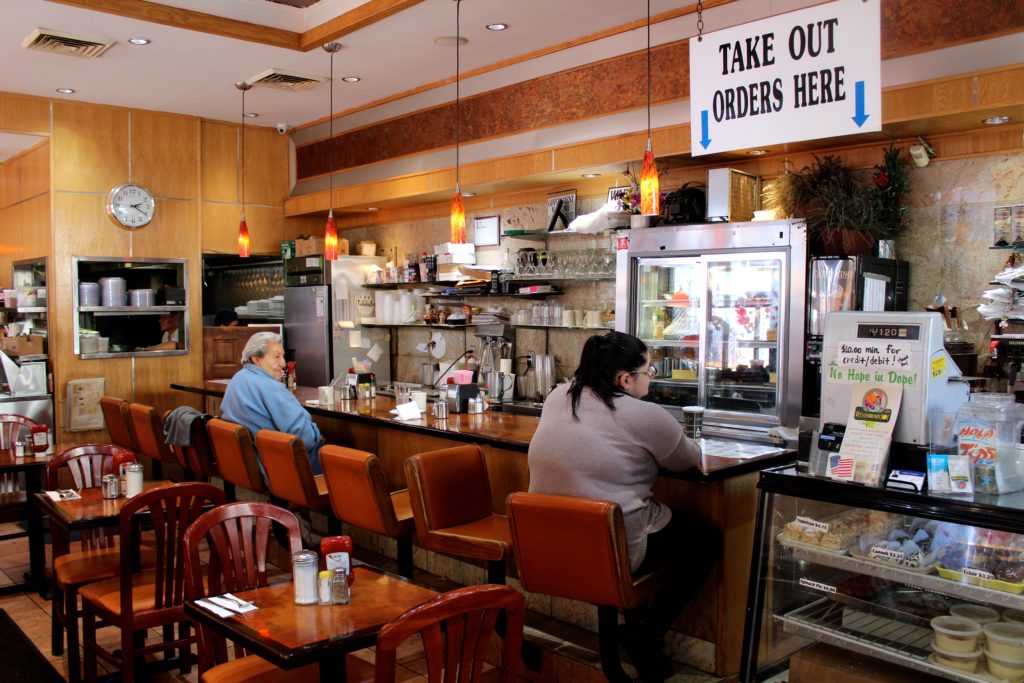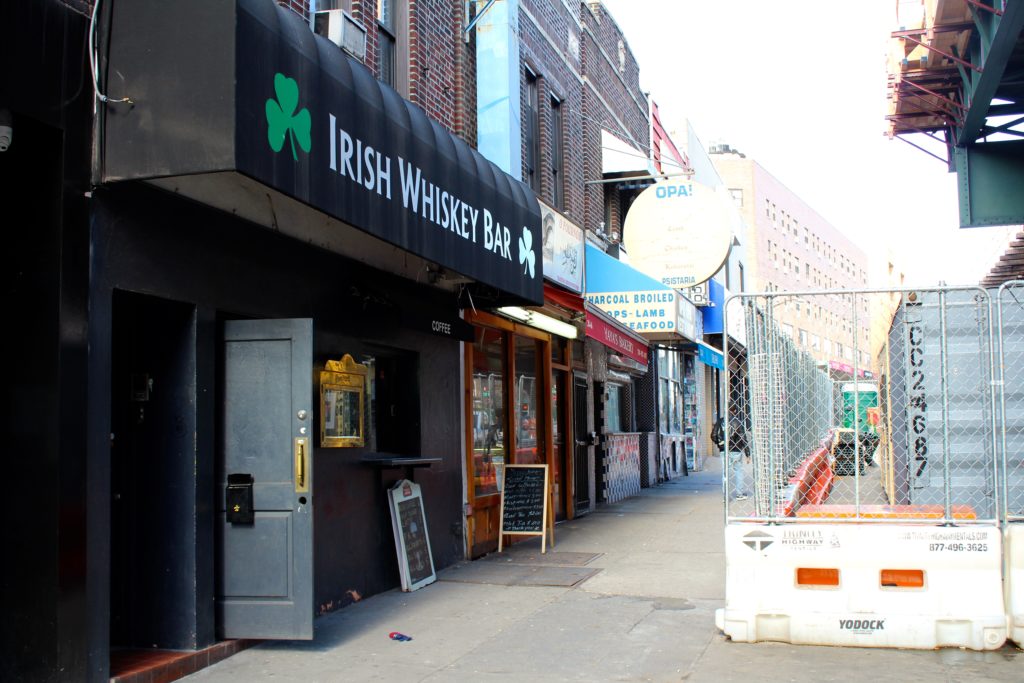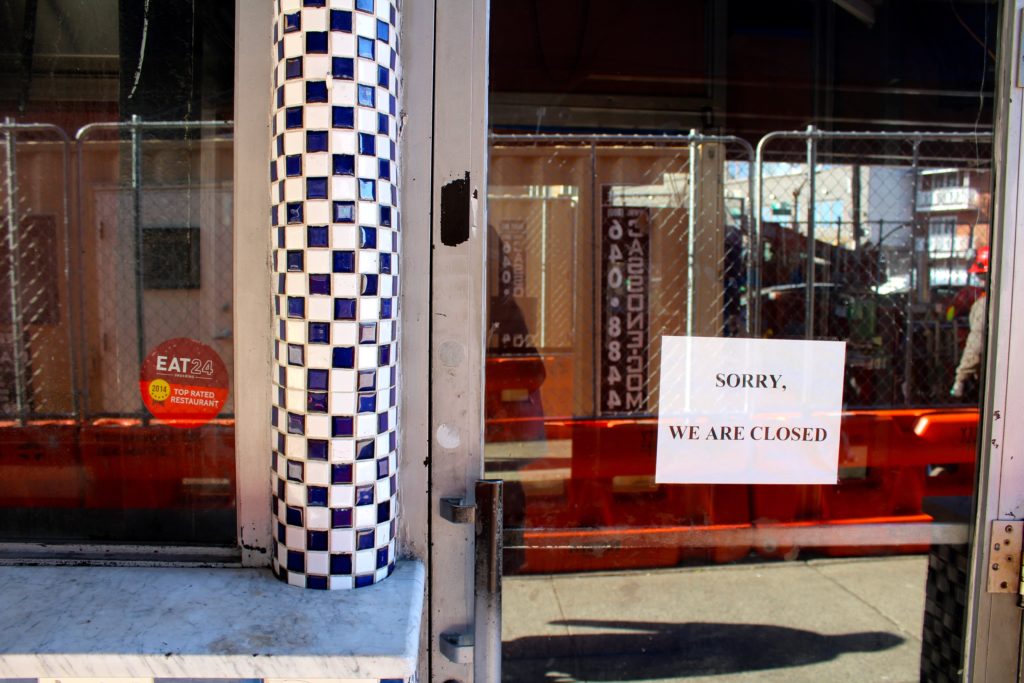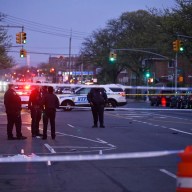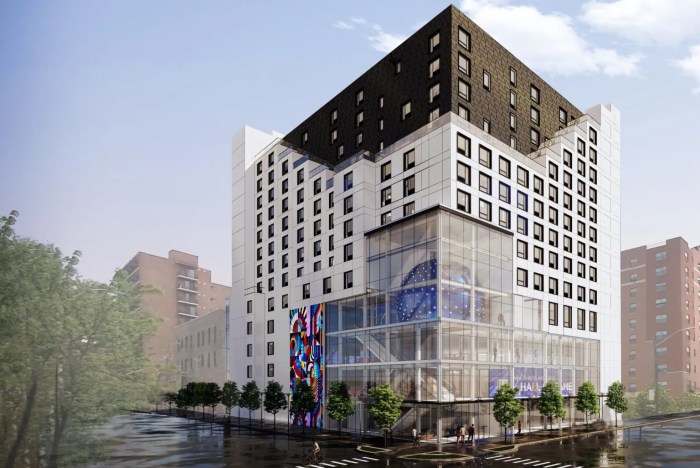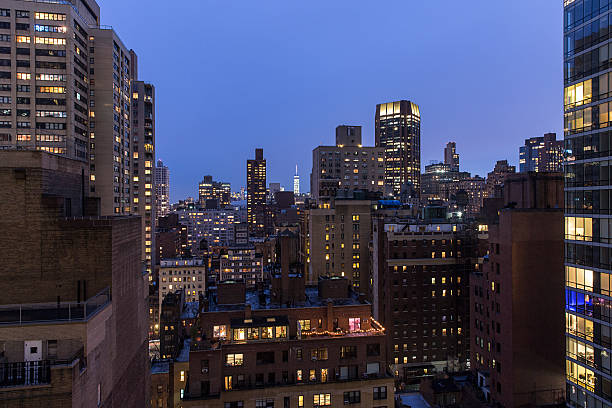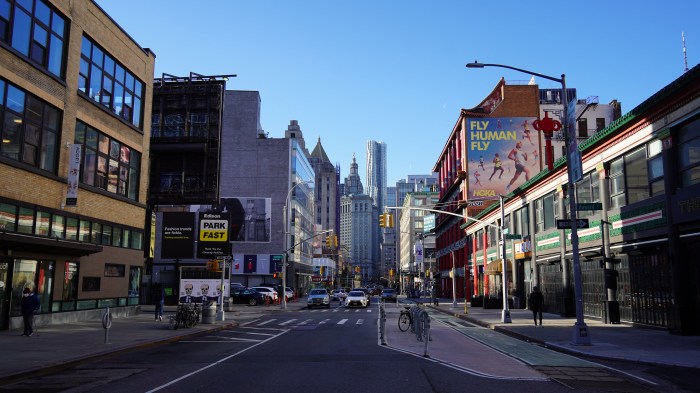Konstantinos Platis has been running Tastee Corner, a 24-hour diner in Astoria, for 22 years.
The business has allowed the Greek immigrant to send three kids to college, but for the first time in more than two decades, Platis said he is struggling to survive.
The reason for this struggle is the closure of the 30th Avenue N/W train stop, which is located right outside of his shop at 30-20 30th Ave. His location next to the train used to be one of the main reasons for his diner’s success; now, the location is a source of worry and grief.
“After 22 years in business, it’s the very first time that I cannot make it,” he said. “I don’t know if I will last until the end of the project. I depend very much on the traffic — on the community to see my space, the people that are passing by to buy coffee, to buy donuts, to buy things and take them to Manhattan. Prices are cheaper here.”
The MTA announced in January 2016 that they would shut down 30 stations around the city to work on renovations that include improved mezzanines and platforms and other amenities like USB ports, digital screens and countdown clocks.
The 30th Avenue station officially shut down in October 2017, and work on the $150 million project is scheduled to be completed in June.
But Platis and other business owners QNS spoke to said the agency did not give enough notice, resulting in a significant drop in business, staff layoffs and other issues with no solutions.
“We were in the meeting last week and they all tell us that ‘We have a plan,’” Platis said. “That plan is to spend $150 million for this project. I said, ‘You had a plan. Why didn’t you give us some time to make our plans of how to survive?’”
After pleas from local businesses, Assemblywoman Aravella Simotas helped to set up a meeting between agency officials and shop owners on Feb. 1 at Katch Astoria, a gastropub at 31-19 Newtown Ave. that is also struggling.
“It is important for quasi-governmental entities, like the MTA, to be responsive to small businesses,” Simotas said. “This is especially true in Astoria where locally owned restaurants and all kinds of small businesses are the lifeblood of our community. The meeting should have opened MTA’s eyes to the devastating impact of full station closures, and prompted it to reconsider any future plans for our neighborhood.”
Roseann McSorley, the co-owner of Katch Astoria, walked up and down 30th Avenue before the meeting to hand out flyers and invite shop owners to attend. Though the bar is not located directly along 30th Avenue, McSorley was troubled by what she was hearing from her neighbors.
“The effect of this is these businesses rely on foot traffic and they rely on parking capabilities on the street, and both of those things have been taken away from them,” she said. “The MTA has taken up not only the subway space but the parking on the street. Fences protrude at least three feet out. They basically removed their livelihood because there is no foot traffic.”
Since the shutdown, Katch Astoria has had a revenue decrease of about 20 to 30 percent. McSorley has also had to lay off kitchen staff and suspects that “other shops will have to do the same.”
Though McSorley said she is grateful to the MTA for visiting Astoria and listening to business owners, she said the agency offered no solutions.
Businesses have asked the MTA to increase the construction staff to finish the work sooner.
They also requested a shuttle bus to try to recreate some of the foot traffic. The MTA pointed out that the Q102 bus stops along 30th Avenue, but shop owners argue that a dedicated shuttle would create more foot traffic.
“NYCT directly addressed this concern by adding service to the [already existing] Q102 bus, which runs exactly along the train line,” said MTA spokesperson Shams Tarek. “We are continuing to monitor the service needs and will adjust appropriately.”
Shahraj Khan, who runs Astoria Wireless at 28-60 31st St., said business has decreased by about 50 percent since the station shut down. The construction equipment and MTA cars also take up curbside parking, making it even more difficult for potential customers to visit his business. He heard about the project 15 days before it began.
“People get longer notices when they get fired,” Khan said. “A project, something this big, should have had at least a three- to six-month notice.”
He called the Feb. 1 meeting “sad.”
“It was sad because they pretty much just brought us all together to tell us how they’re going to screw our businesses,” he said. “They had no solution. They weren’t even willing to negotiate. Without saying it directly they just said, ‘Get over it.’”
Frank Arabascio, who runs Redken Salon at 36-17 30th Ave., said that depending on the week, business is down 20 to 25 percent even though his hair salon is about seven blocks away from where the construction is taking place.
“The shuttle bus is a solution,” he said. “Not the best, but it’s a solution. It’s being ignored. Businesses are still going to have that walking traffic that they depend on [with the shuttle bus]. Whichever way you walk is where you’re going to get your coffee, your newspaper.”
Arabascio said he is glad the MTA held a meeting because it has started a chain reaction of businesses speaking to each other, to elected officials and to the press. Since the MTA is planning to conduct similar repairs to the Broadway and 39th Avenue stations later this year, Arabascio said he wants to inform businesses in that area so that they can better prepare.
“We have six months to warn them and possibly do something about it,” he said. “If we can tell them in advance the pressure [on the MTA], win or lose, has got to be coming beforehand.”
Elected officials in Astoria recently slammed the MTA when they announced last week that the Ditmars Boulevard station would also be repaired. Though the station will not shut down while upgrades are being made to the infrastructure, officials said they are worried that businesses will suffer and that the repairs are mostly “cosmetic.” They also argue that the MTA should make elevators a priority during these shutdowns.
MTA officials said the work is not merely cosmetic and that the stations need critical infrastructure upgrades since they are 100 years old. Work includes repairing and replacing structural columns, beams and girders, repairing the underside of the mezzanine and more.
“Ditmars Boulevard and the other nearby stations on the N/W line are more than 100 years old and have not received comprehensive overhauls until now,” the MTA said in a statement. “The longer much-needed repairs are delayed, the longer the repairs will take and the more urgent they will become. The extensive repairs these stations are receiving are essential for public safety – to characterize them as merely cosmetic and unnecessary is absolutely incorrect, and irresponsible.”
Arabascio also said the area has not experienced a shut down like this so it was difficult to prepare. In 2006, a nine-day blackout devastated businesses in western Queens. Former Mayor Michael Bloomberg announced that the Small Business Administration would give emergency $10,000 low-interest loans to affected shops.
Arabascio and other business owners argue that the city should replicate those efforts here.
“The MTA can get to the city and ask them to give us relief. They made a $150 million project. Spend a couple million on the businesses to relieve the people here,” Platis said. “If I knew that [the station was closing in advance], I would do something. Close my place for two to three months and renovate. Do something and use this time. Not dying every day. It’s a slow death.”
Owners of Irish Whiskey Bar at 28-48 31st St. say business is down 50 percent during the daytime and 30 percent at night. Barry O’Reilly, the co-owner and bookkeeper, acknowledged that the 100-year-old station needed repairs but said the construction equipment “just showed up one morning.”
“We’re losing a lot of guys,” O’Reilly said. “We’re here building the business for five years. But now obviously people can’t get off at 30th Avenue. If you’re getting off on Broadway, you’re gonna go to a bar on Broadway. There’s nothing you can do; you just gotta suffer through.”
Co-owner Liam O’Reilly scrolled through pictures on his phone of cars and construction equipment taking up valuable parking spots near his bar. He was also alarmed to hear that as of January, the MTA announced they had completed 25 percent of the work.
“They said they were 25 percent completed after four months and they said they were on schedule. So you can do the math on that,” he said. “They’re supposed to finish in five months.”
The MTA has said they are still on schedule to finish in June.
Platis, who has had to lay off three employees since his revenue has declined by 40 to 50 percent, said the area resembles a desert at night, which is troublesome for a 24/7 diner.
He is hoping that his suppliers and landlord are “patient” because he is already falling behind on payments. He tries to keep up appearances, stocking the window displays with donuts and fresh pastries every day.
“If I don’t sell the donuts the same day, I have to throw them away,” Platis said. But leaving his front window empty is not an option. “For the few people coming in, I have to have something.”
Instead of brewing four pots of coffee a day for customers, he only brews one, he said. Platis added that he has racked up parking tickets because he is forced to double park to load in food.
“I have to carry my stuff half a block away,” he said. “I had my car full of perishable things [and] I cannot find a place to unload.”
Each business owner recounted stories of friends in the neighborhood who were also struggling — Opa at 28-44 31st St. closed down because the owner could not keep up with rents, according to McSorley from Katch; Petey’s Burger at 30-17 30th Ave. is now relying on takeout orders because in-store customers are almost non-existent, according to Platis from Tastee Corner.
Khan said that though the issue is discussed within the business community, Astoria residents may not fully realize the extent of the problem.
“The business owners, we know what the situation is, we know how we’re hurting but I don’t think the community understands,” he said. “It’s not their problem. I understand and I don’t hold them accountable for it but I think if they knew, people would be upset as well.”

